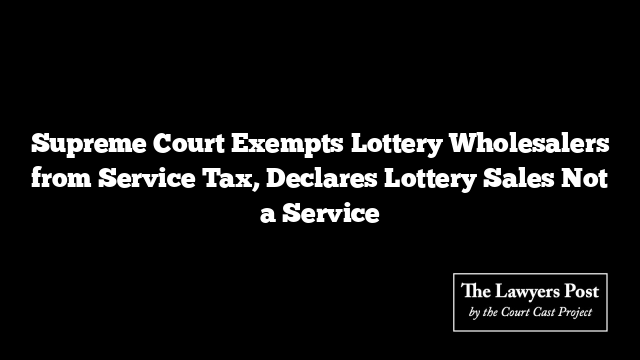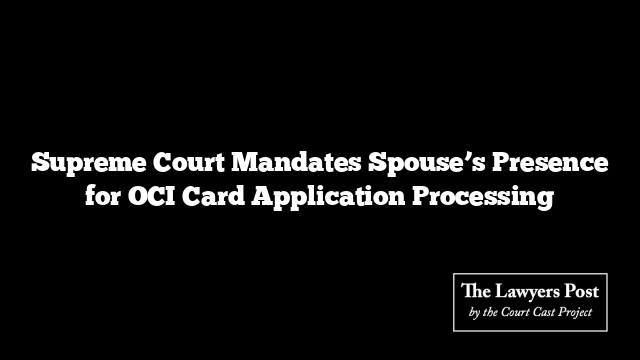The Supreme Court has ruled that the sale of lottery tickets by state governments does not constitute a service, but rather a revenue-generating activity. This decision exempts wholesale lottery purchasers from the liability of paying service tax under the “business auxiliary service” category.
The appellants, wholesale buyers of lottery tickets, argued that they were not involved in promoting or marketing any service provided by the state. Their contention was that buying lottery tickets in bulk at a discount and selling them to retailers should not attract service tax under the provisions of the Finance Act, 1994.
The Court, presided over by Justices BV Nagarathna and N Kotiswar Singh, agreed with this argument, stating that there is no “business auxiliary service” relationship between the state and the appellants. The ruling emphasized that the transaction was a straightforward sale, transferring ownership of the tickets to the wholesalers, who then sold them to others, without any promotion or marketing on behalf of the state.
The judgment also highlighted the distinction between goods and actionable claims, reinforcing that lottery tickets fall under the latter category and thus cannot be taxed as goods under the Finance Act. This clarification was essential in overturning previous High Court decisions from Kerala and Sikkim that had imposed service tax on the appellants.
The Supreme Court concluded that the state’s sale of lottery tickets is a privileged revenue activity and does not constitute a service for which wholesalers would owe service tax. As a result, the appeals were allowed, and the lower court judgments were set aside.





